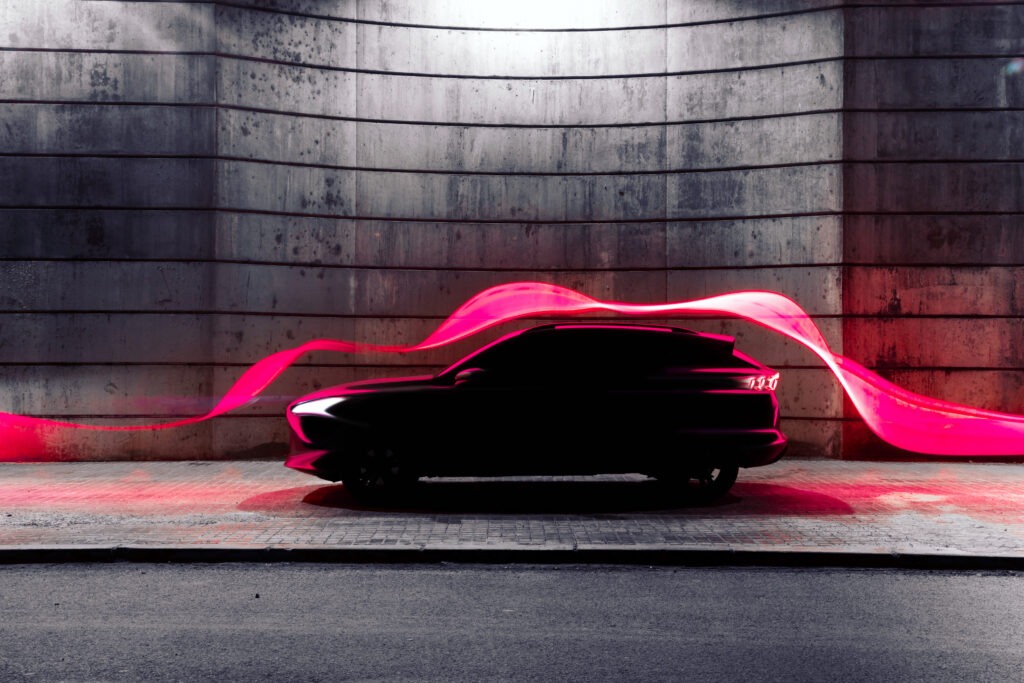Tesla models lead Europe’s EV market in first half of 2023
15 August 2023

Europe’s electric vehicle (EV) market is continuing to grow rapidly with impressive figures in June. José Pontes, data director at EV-volumes.com, considers the numbers.
Europe saw over 311,000 EV registrations in June, up 42% on the same month in 2022. But the overall market also grew quickly, up 19% year on year.
Electric vehicles made up 25% of all new-car registrations in Europe (encompassing the EU, UK and EFTA markets). Battery-electric vehicles (BEVs) alone held a 17% share after the number of newly registered units increased 57% year on year.
Meanwhile, plug-in hybrids (PHEVs) recorded their highest rate of growth this year at 17%, ending the month with close to 100,000 units. This meant BEVs accounted for the vast majority of EV sales in June at 68%, while PHEVs made up the remaining 32%.
Tesla in first and second
For the eighth month in a row, the Tesla Model Y was the best-selling EV in Europe. In June, the midsize model recorded 33,523 registrations. It benefitted from competitive pricing and a balanced ratio of supply and demand, meaning quick deliveries.
The crossover can be expected to continue posting similar results in the coming quarters in Europe. However, this is unlikely to significantly exceed current volumes, as the Model Y may have already reached the market’s natural limit.
The Model Y’s biggest European markets in June included Germany (6,098 units), France (4,335), Norway (3,127), the UK (5,500 units), Sweden (2,408 units), Denmark (2,164), and the Netherlands (1,778 units), while Belgium also had a high number of deliveries at 1,300 units.
The Tesla Model 3 finished the month in second with 14,163 registrations. Sales can be expected to rebound once the brand’s refreshed version lands. However, how much volume this might add is up for debate.
The distribution of deliveries was more irregular than for the Model Y, with bigger markets like France (3,966 units), the UK (1,962 units), Germany (1,668 units), and Italy (1,010) taking the largest chunk of sales.
In third, the Volkswagen (VW) ID.4 recorded 10,252 registrations in June. Increased production availability is the result of localised output in the US and the start of manufacturing in Germany. The ID.4 now has enough momentum to compete for second place in 2023, hoping to move up from third place in 2022. The ID.4’s main market in June was Germany (3,754 registrations), followed by Norway (1,176 units), the UK (1,016 registrations), and Sweden (972 registrations).
Without reaching the sales levels of previous months, the Fiat 500e made it to fourth, with the new Abarth hot hatch version likely helping with this uptake. At 7,954 sales, the best-selling city car is currently in recovery mode after a slow start to the year.
Germany was its largest market, with 3,004 registrations, followed by France (2,781 registrations) and then Italy (452 registrations). This last result might seem a little low, given Itay’s love for domestic brands and small cars, but this probably has more to do with the country’s slower EV transition.
The MG4 earned another top-five spot in June with 7,799 registrations, cementing a new record for the model. With a purposeful look, good handling, and reasonable interior materials, the hatchback has been performing well since its launch, offering a budget option to EV motoring.
The model’s main markets were the UK (2,213 registrations) and France (2,511 registrations), two big hatchback locations. The remaining countries ended some distance behind, such as Germany with 928 registrations.
Other highlights in June included the sixth-place Skoda Enyaq, which celebrated a record performance of 7,119 registrations. The Renault Megane EV had a positive result, ending in 10th with 5,032 registrations, making it the best-selling French model in this table.
The second half of the table also witnessed notable performances, like the BMW iX1 scoring its second-record result in a row with 4,158 registrations, placing it in 16th. The Kia EV6 achieved a best-ever result of 3,892 units, making it the best-selling Korean model on the table.
Below the top 20, there were several other positive performances, such as the MG ZS EV hitting 3,032 units, its best result in two years. Meanwhile, VW Group had two wins in the full-size category. The Audi Q8 e-Tron took the highest podium position in the category with 2,875 registrations, the model’s best score since its name changed, then the Porsche Taycan came in second, with 2,473 registrations.
Stellantis recorded several solid results from the Opel Corsa EV (3,072 units), the Opel Mokka EV (3,587 registrations), and the Peugeot e-2008 EV (2,688). But the highlight was the Jeep brand, with the Avenger EV scoring 1,206 deliveries in its second month on the market. The model is due to start knocking at the door of the top 20 in a few months.
Three times the deliveries
In the first half of 2023, the Tesla Model Y recorded three times as many deliveries as the second-place Model 3. But the Tesla sedan will likely have a hard time holding onto this position, as both the Volvo XC40 and the VW ID.4 were fewer than 2,000 units behind. While the Volvo may start suffering from comparisons with the new EX30 soon, the German crossover will surely be a tough adversary.
Elsewhere, the Fiat 500e rose to sixth, putting distance between itself and the 10th-place Dacia Spring, its direct competitor in the city car category. Renault’s Twingo EV and Zoe are showing their age, the Megane EV is trying to fend off its competitors, and the Nissan Ariya is selling below expectations (under 1,000 units a month). This means the Renault–Nissan alliance needs a sales champion to avoid an over-reliance on the Dacia Spring.
In this context, Renault’s decision to end the production of the Zoe by next March appears strange. This is because its successor, the Renault 5, is reportedly set to hit the market by the end of 2024, assuming there are no delays.
In the second half of the table, the Polestar 2 jumped two places up to 18th, with hopes of reaching the 16th-place BMW i4 by the end of the year. In the midsize category, the Kia EV6 rejoined the table in 20th, replacing the Lynk & Co 01 PHEV. This means there are now only two PHEVs in the top 20, the 12th-place Ford Kuga PHEV and the 14th-place Volvo XC60 PHEV.
While the Tesla Model 3 has three direct competitors on the table (BMW i4, Polestar 2, and Kia EV6), the Tesla Model Y has effectively dried out its direct competitors. The only other midsize crossover/SUV in the top 20 is the Volvo XC60 PHEV, which appeals to a different demographic.
Unlike the Model 3, the Model Y does not have direct competition coming from local heavyweights. For example, Audi has yet to release the Q6 e-Tron and the Mercedes-Benz EQC is four years old. The only model that could approach the Model Y in Europe (and North America) is the Ford Mustang Mach-E. But Ford’s current production constraints and high pricing are preventing the model from pushing past its current volumes.
Out in front
In the brand ranking, Tesla was comfortably out in front in June with a 13.1% share, up 0.7% compared to May. VW took the runner-up spot with an 8.5% share, up 0.2% compared to the previous month.
Third-place BMW (7.9%) gained an advantage over Mercedes-Benz (7.4%, down from 7.7%), but with only a slim margin separating the two, a lot could still happen. Finally, Volvo (6.2%, down from 6.5%) was comfortable in fifth, with sixth-place Audi (5.3%) and seventh-place Peugeot (4.7%) some distance behind.
Arranging things by automotive groups, bringing individual brands together under their parent company, VW Group’s share was up to 19.9%, keeping a comfortable lead over new runner-up Stellantis (14.3%, up 0.4% from May). Tesla jumped from 12.4% to 13.1% and can be expected to go after second place in the latter half of 2023.
In fourth, BMW Group was stable at 9.5%, while in fifth, Geely–Volvo suffered from poor performances from Volvo and Lynk & Co, dropping to a share of 8.7%. In sixth, Mercedes-Benz was some distance off (8.3%, down from 8.6%) and seventh-place Hyundai–Kia was stable at 8.2%, meaning Geely should remain in fifth during the next few months.



